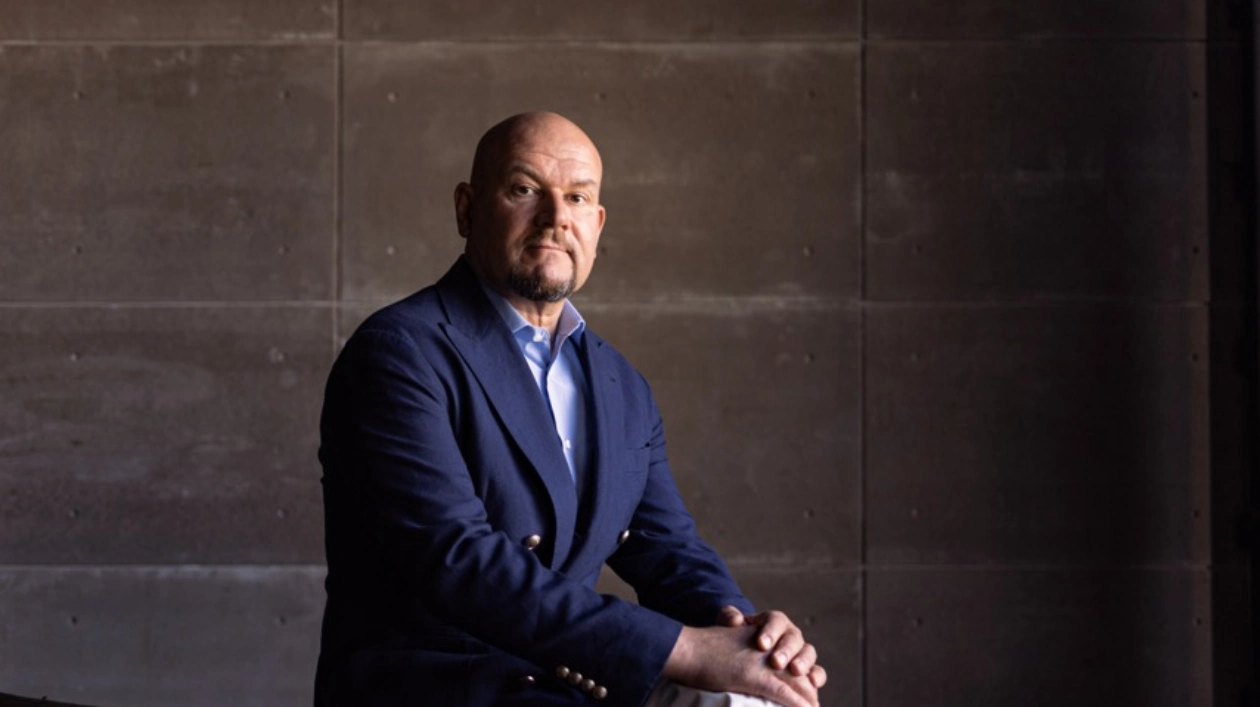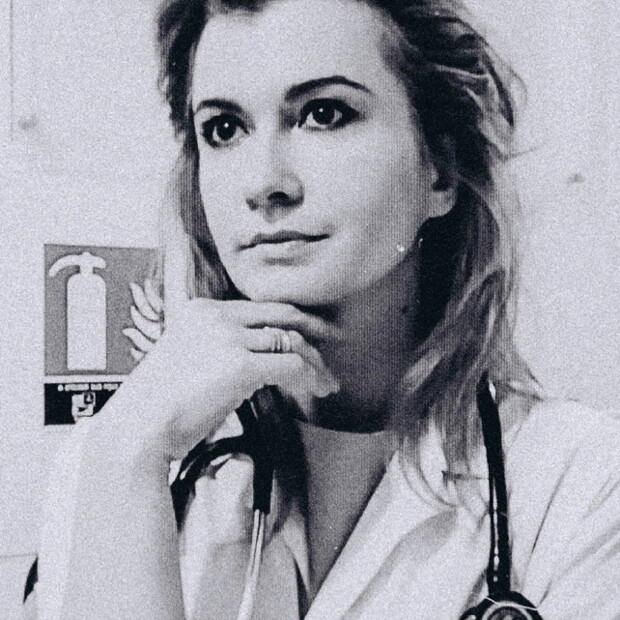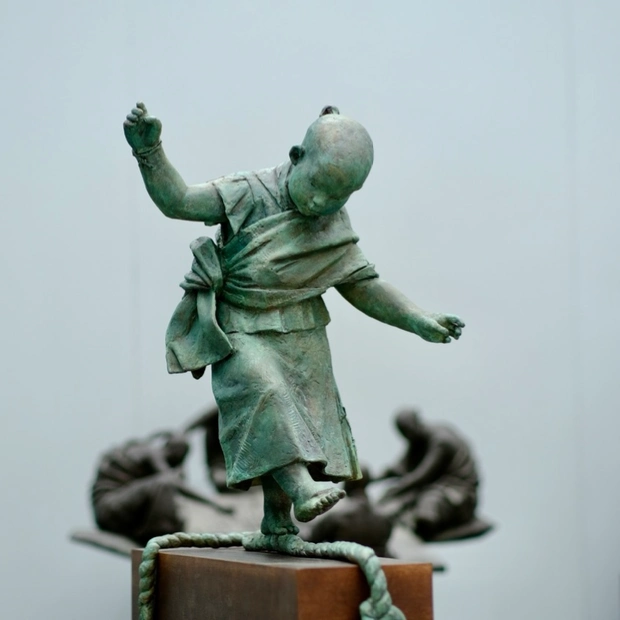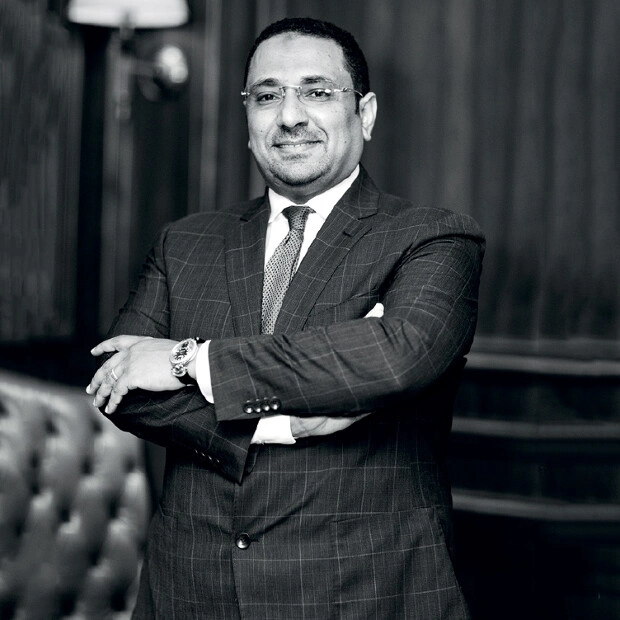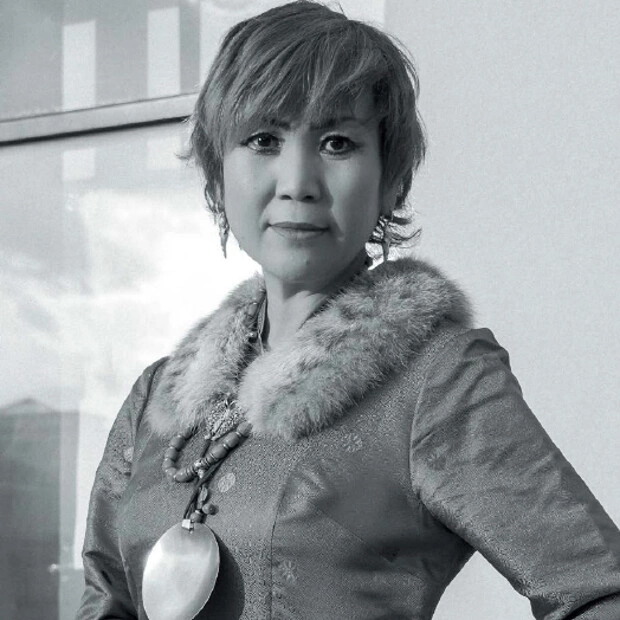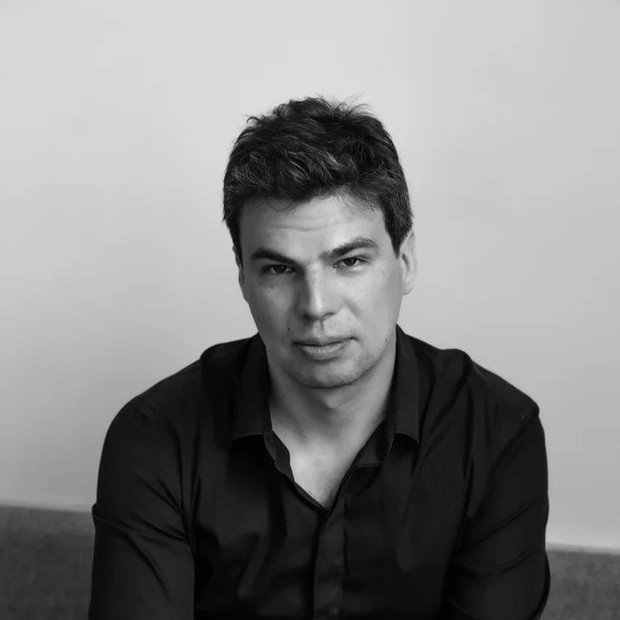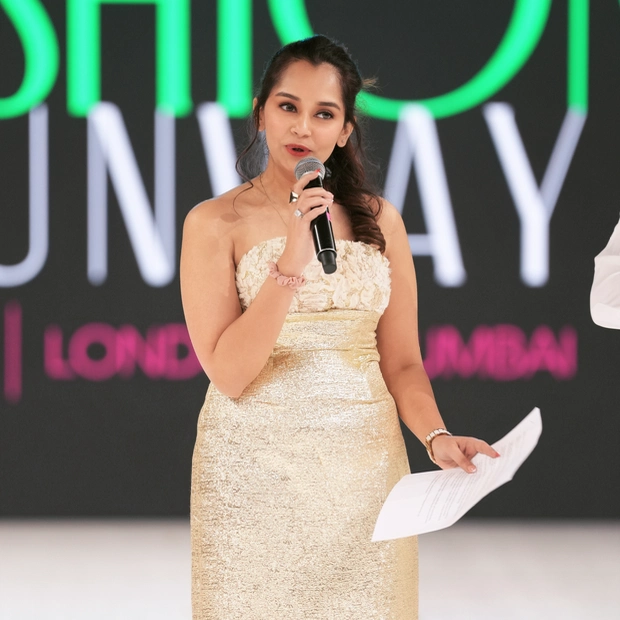In Motion
Entrepreneurship is a continuous journey forward, where three components are critical for success: the ability to learn from mistakes and failures, honesty with partners, and openness to new ideas. This is the philosophy adhered to by Sergey Samoylov, a successful businessman, investor, and co-owner of the popular Dubai restaurant Chalet Berezka.
Chalet Berezka in Dubai is the result of our joint project with the renowned restaurateur Anton Viner, who owns numerous establishments worldwide. To mitigate risks, my friend and businessman Mikhail Karepin and I decided to invest in this restaurant together. It all began in 2016 when Anton proposed The Point location, owned by Nakheel Properties. The developer promised to transform this spot into a tourist attraction hub and organise the longest fountains in Dubai.
We signed all the documents, but the construction was delayed for reasons beyond our control. The restaurant's renovation took over a year due to Nakheel's delays in connecting utilities. The talented Sundukov sisters created the restaurant's design. Finally, we opened, but the promised fountain never materialised, and visitor numbers were low. The competition in Dubai is fierce, and promoting a new brand proved challenging. Then the pandemic hit.
Mikhail started organising festivals, inviting artists, running promotions, and investing significant funds in marketing. Business gradually picked up. We changed the manager, I reformatted the accounting, and later Vlad Dubrovsky, owner of the Royal Arbat brands, joined us. Initially, we didn't have a clear concept and weren't sure it would be a karaoke restaurant, but karaoke turned out to be the most lively and successful project.
The pandemic was a tough test; we paid salaries even though everything was closed. But after it, we saw a surge of visitors, over 50-60 thousand people per year. The New York Times and other global publications wrote about Berezka. Now it's one of the most popular Russian restaurants in Dubai.
Originally, Anton envisioned Berezka as a Russian-Uzbek cuisine restaurant, as he's a big fan of Uzbek dishes. But the pure restaurant format didn't work; karaoke became the undisputed leader. With Vlad's arrival, entertainment emerged, and famous artists began visiting us. Success came from a winning combination: people could come to eat delicious food and then have fun, dance, and sing karaoke with quality backing vocals, good music, lighting, and sound.
Our restaurant-club also serves as a venue for mini-concerts. Many stars of the Russian and foreign stage have performed here. Of course, performances by artists like Meladze or Kirkorov are very expensive and aren't that profitable for a small hall, but these newsworthy events do their job, attracting new audiences.
Before us, there were already restaurants with Russian cuisine in Dubai. But, in my opinion, Chalet Berezka is the highest quality restaurant with delicious food of its kind. Now we only receive rave reviews about the cuisine; our chef Zhenya Belogorlov is incredibly talented and creative. We plan to open another restaurant and are considering the concept.
I believe Russian cuisine has great potential in Dubai. Our taste preferences differ from the locals', although they intersect somewhat with Italian cuisine. But traditional Russian dishes like Borscht, Solyanka, Olivier salad, Vinegret, and Pozharsky cutlets are irreplaceable for a Russian abroad. They need to feel this familiar food nearby.
I had never been in the restaurant business before — I'm an accountant-auditor by education, graduated from a financial and economic institute, so that's my speciality. For Dubai, my partners and I were looking for an interesting and promising foreign project, as we spend a lot of time there and wanted to diversify our guests' leisure time with an interesting and high-quality project.
I started doing business while studying in my first year at the institute. Now my portfolio includes my own retail business and a company for the construction and operation of real estate, as well as other projects. In most of my companies, I act as an investor and am responsible for accounting, control, and other financial matters.
I first visited Dubai as a tourist in 2001 and immediately fell in love with the city. We began to come here often for holidays, 3-4 times a year. In 2012, I bought an apartment that we used as a dacha, living there for long periods with the children. And then we decided to move to Dubai permanently.
I like the safety of Dubai, the clear and simple conditions for doing business, although there are also difficulties. The cleanliness, wide roads, abundance of sports facilities, weather, and sea are all appealing. It's convenient to fly all over the world from here, using the emirate as a base — a big plus for business.
Perhaps the main downside of doing business in Dubai is the high staff costs. If you have many people working for you, you are obliged to rent or compensate for housing for each of them, which has become very expensive with the rise in prices. Plus, you need to arrange insurance, visas, flights, holidays, and make salary increments for length of service. The gross salary with accommodation amounts to a tidy sum, and when you have 120-150 employees, these are significant costs. Given the seasonality of business in Dubai, the summer slump, and the need to pay salaries constantly, personnel costs put a lot of pressure on the business.
Another problem is the very expensive rent. Finding a good location for a restaurant in Dubai is almost impossible. Looking at colleagues' experiences, I see that despite the abundance of beautiful establishments with interesting concepts, the emirate sorely lacks truly delicious food. The presentation may be stunning, but the food is often tasteless, and people don't want to return. Therefore, when opening a restaurant in Dubai, the first thing you need to do is not make a mistake with the concept and menu. And secondly, with the location. Location is the alpha and omega of the restaurant business.
In my opinion, the most promising locations for a restaurant in Dubai are the Dubai International Financial Centre, which serves as a draw for tourists and the Dubai business community, The Palm Jumeirah and Jumeirah Beach Residence, where the Russian community resides, and Bluewaters Island, which should liven up after the opening of the Ain Dubai observation wheel. Many Russians live in Dubai Hills, where projects do well in shopping malls. New large restaurants are also opening in Jumeirah.
As I immerse myself in the restaurant business, I see that the problem of unappetising food in Dubai establishments is primarily related to the hands that prepare it. For example, a chef comes with a good concept, explains it to a Filipino or Indian cook, who then starts making their own creative changes to the recipe and dosage of ingredients. As a result, the dishes change beyond recognition. When a person initially doesn't understand what they are cooking, they start doing their own thing. As I jokingly say, the cook prepares according to a recipe that he allegedly heard from his grandmother, and she from her great-grandmother, although in reality, no one has ever tasted this dish.
There are no particular problems with products in Dubai, except for greens. We've learned to buy vegetables in Uzbekistan, from where we also bring tomatoes, because the imported Dutch ones taste like plastic. Meat is also fine; the emirate has established high-quality production. But finding good salads, arugula, and dill is still difficult. Guests love coming to us because our food is delicious and it's never boring.
Among the unusual stories associated with Chalet Berezka, I recall days when we worked almost around the clock. Some guests stayed until two in the afternoon. We couldn't refuse them if they extended the time, paid well, and gave generous tips. It turned into a kind of private 24-hour restaurant.
Also, I think we had the most beautiful New Year's Eve, as we are at the epicentre of the fireworks. And the most generous guest once left $200,000 at Chalet Berezka, of which $100,000 went on 100 bottles of Cristal. Of course, some were drunk, while the rest were simply poured over each other, like in Formula 1.
Recently, we were offered the chance to move to a new location on the roof of The Point. We will slightly change the concept, bringing it closer to a nightclub. The design will be fantastic, with a play of light and screens — no one has done this in Dubai yet. There will be a VIP room for private events with a view of the Atlantis The Palm hotel. The music will become even better,ready to welcome guests in dignified surroundings. Plus, we will be clearly visible from the Palm, especially when driving along its trunk.
The area of the new establishment will decrease, but this is not critical. Before, we had about 1,000 square metres on two floors; now there will be about 700, of which 500 will be for the hall. But the veranda will become significantly larger, and we plan to air-condition it to make guests comfortable even in the heat. The new location inspires me.
As an entrepreneur, what inspires me the most is that people like our restaurant. They come again and again, which not only warms the soul but also brings good dividends. It's also nice to feel a certain popularity, to be in the public eye.
However, one project is not enough to feel like a real restaurateur. Probably when there are two or three or more, you can talk about yourself that way. Now, personally participating in the creation of a new restaurant, I am encountering many nuances of this business for the first time.
I'm used to overcoming difficulties — in life, I'm motivated by the desire to never stop, at any age, with any income and level of security. Entrepreneurship is my essence and meaning of life. I have many different projects; I like everything new and interesting. The more businesses, the more communication, pleasure, and energy.
I can't say we are bathing in luxury, but we are not struggling either. I often give my children the example of the early 90s when I entered the institute. Back then, in our family, which was considered quite well-off by Soviet standards, it was difficult to scrape together three rubles for my pocket money. I would buy a Prague cake with that money in the institute canteen, we would eat it with the whole group, and that was it — there was nothing to live on, literally nothing to eat. A 16-17-year-old student is constantly hungry; I had to hustle to get food. I remember this experience well, and it doesn't let me relax to this day, constantly pushing me to move forward.
I perceive any mistakes and failures as payment for new knowledge. Each loss is an opportunity to "buy sense", and sometimes such experience is worth much more than the lost money. For example, in the early 2010s, my partners and I were in the banking business. Shortly before that, I was badly deceived and lost over a million dollars in fraudulent schemes. But this bitter lesson did me good: when I entered the banking sector, I managed to multiply my capital many times over. So, I have no regrets. I learn from life and people — I've learned a lot from my partner Mikhail Karepin. He is a very wise man: he knows how to give truly valuable advice.
I have many plans. The main thing now is to launch the updated Chalet Berezka with dignity. In parallel, we are thinking about supplying vegetables and fish from Dubai and want to try our hand at local real estate. It's too early to announce, but if we manage to implement at least part of what we have planned, it will be great.
Every time I come to Dubai, it's as if I wash off the Moscow fatigue and routine. The change of scenery gives new thoughts, emotions, and strength to move on, not forgetting the main rule that I invariably follow in this movement — to be as honest as possible with partners. Never do to others what you don't want to be done to you — only then can you count on success.
